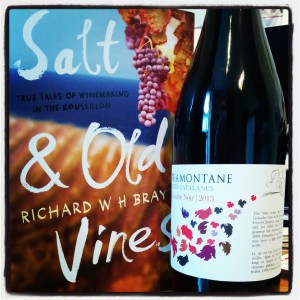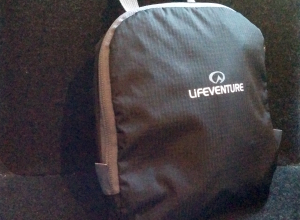
Stop! Don’t do it. Don’t climb that mountain. Don’t sail that Ocean. Don’t open that restaurant.
It’s hard. It hurts. It’s risky. What’s the point?
Of course, the point is in the ‘doing’. Those who do these things don’t care about the arguments against it – they have to do it. The rest of us live vicariously through their photos of the views, their videos of the action, the taste of their food.
Thus it is with wine. Most of us love to sit comfortably in our homes and restaurants, open a bottle of wine and feel like we are living a small part of the experience of the winemaker. We glance at photos of manicured vineyards, ripe grapes, rows of barrels and picturesque wineries and imagine that we have a better understanding of that wine.
But where are the wine versions of the broken arms, frost-bitten toes, sleep-deprived storm watches and 1am kitchen clean-ups? Wine certainly benefits from the consumer’s romantic ideas of winemaking, but how real is this image?
A clue to the answer lies in the title to Richard (W.H.) Bray‘s new book, “Salt & Old Vines“ (Unbound**, 2014 – I was a backer of the book project). The title is in reference to the question: “What does it take to make good wine?” Well, apparently the answer is to start with old vines in good vineyards, in this case near the sea, … and then invest oceans of salty blood, sweat and tears. Oh, and also beer. And gin.
Richard’s book is a very engaging read, perfect for sunny weather when you might consider relaxing in the sun with a good book and a glass of wine to match, as I did. He approaches the subject as a knowledgable professional, but also full of candour, humour and an obvious love for his subject, both wine and the region he makes it in. As he says:
“This is not a wine book, not really. It has quite a lot of wine in it, both made and drunk (…) it is a book of stories…”
The stories, spanning a ‘vintage’, are not your usual collection of wine truisms. They’re personal accounts of busy days and late nights, the characters in and around a winery, and the interconnection between the people, places and nature, whose life-force runs through wine-making regions and we usually only glimpse through the taste of good wine.
Salt & Old Vines is one person’s collection of stories, both personal and handed-down, that bring these wines to life. Stories that identify a wine and region, that make it unique and give it context. They are not the stories of an outside journalist reporting on the work of others, nor are they the story of the winemaker who lives and dies for their wine. They are the rarely told stories of the people behind the arrows in diagrams of how things happen – the team, the crew, the staff that make the vision reality.
Along the way, we get some great images of working in the vineyard in the midday sun, of the Heath Robinson (or Rube Goldberg, depending on your tradition) nature of wine machinery, of Gallic amorous habits, dreadful coffee and plenty of great friendships.
Like the wine poured into many glasses, these stories are what we really can share. These are the creations, not history. As Richard notes, concerning an (unreliable) account of Hannibal and his elephants having passed through the Collioure countryside:
“… I don’t want to check. … because I’m enamoured of that being one of the stories of this place, whether it is true or not.”
Through these stories we experience Richard’s days of exhaustion, pain, confusion and more than one hangover, but also his local travel observations, his wine-blending triumphs and his vinous thoughts and discoveries. Incidentally, along the way we also learn about wine and the beautiful regions of Banyuls and Collioure in the south of France.
If you simply love drinking wine, like me, then this book should scare you away from ever wanting to make wine, yet make you want to drink it more, … but then simply drinking it may not be enough for you.
In either case I think it is important. I do not like wine less because I don’t want to make it. On the contrary, I love it more because I realise more clearly how hard it is to make, how many people suffer for their passion in order to bring it to us, and because I do not have to do this myself.
In either case I expect you will love this book.
** Salt & Old Vines was funded via Unbound, a new breed of digital publisher that allows authors and future readers to come together to create the books we want to read. I have funded several books from multiple authors in this way and encourage everyone to take a look and bring more stories to life.





